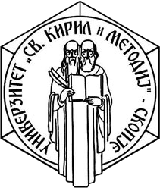EuroCC

Within the EuroCC project under the European Union’s Horizon 2020 (H2020), participating countries are tasked with establishing a single National Competence Centre (NCC) in the area of high-performance computing (HPC) in their respective countries. These NCCs will coordinate activities in all HPC-related fields at the national level and serve as a contact point for customers from industry, science, (future) HPC experts, and the general public alike. The EuroCC activities—with 33 member and associated countries on board—is coordinated by the High-Performance Computing Center Stuttgart (HLRS). The project aims to elevate the participating countries to a common high level in the fields of HPC, HPDA and artificial intelligence (AI). To this end, the EuroCC project will establish National Competence Centres (NCCs) in the participating countries, which will be responsible for surveying and documenting the core HPC, HPDA, and AI activities and competencies in their respective countries. Ultimately, the goal is to make HPC available to different users from science, industry, public administration, and society.
More information about the project can be found at https://www.eurocc-project.eu/
The role of FCSE, UKIM in the project
FCSE, UKIM is the National HPC Competence Center in Macedonia, taking the leading role in developing the roadmap, capacity building, training as well as the facilitation of access to expertise. It will interface with industry partners to enlarge the HPC application nationwide.

